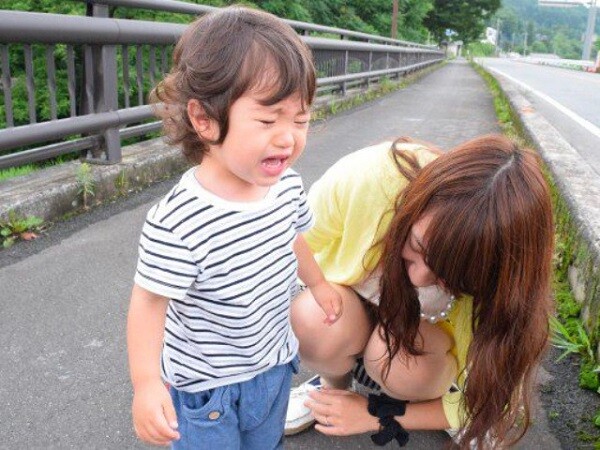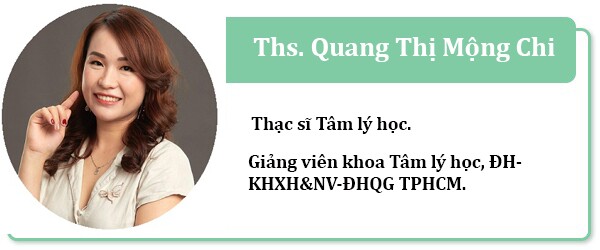It is not uncommon for adults to teach children to “hit back” or find similar excuses when they are young, but when they grow up and become defiant, refusing to take responsibility for their mistakes, they resort to corporal punishment.

Illustration photo.
This creates a major contradiction in education, as children learn not only from what adults say but also from their actions and behavior. When they are young, children can easily perceive the injustice in the way their parents or adults react to their mistakes.
This inconsistency in education can lead to confusion and a lack of understanding of the value of taking responsibility among children.
As they grow up, children may develop a habit of blaming others or their surroundings instead of facing their own mistakes.
Moreover, education through corporal punishment is not only ineffective but also psychologically harmful to children, making them fearful, withdrawn, and reluctant to share their mistakes with adults.
The most important thing for both children and adults to realize is the cause and their own responsibility for their behavior. When children understand that every action has consequences, they will be motivated to think more carefully before acting and also find it easier to take responsibility when necessary. On this matter, psychologist Quang Thi Mong Chi suggests some additional solutions for parents to refer to.

Master of Psychology Quang Thi Mong Chi.

What do experts think about the culture of “hitting back” in many families? Why do many Vietnamese parents still use this method to teach their children?
Whenever a child falls or hurts, their grandparents or parents will immediately “hit back” what hurt the child. This is a very common reality in child care and education in Vietnam.
Almost everyone sees others do it, then follows suit, and then it becomes a habit, and they don’t think much about it anymore, considering it a normal part of educating children.
However, using this method frequently is not conducive to the positive psychological development of children, especially when they do not acknowledge their own responsibility but blame others, objects, or events, leading to difficulties in drawing life lessons when they grow up.

Are there any common phrases that make children tend to blame their circumstances instead of taking responsibility?
In Vietnamese families, some common phrases that can influence how children learn about responsibility and blame their circumstances instead of taking responsibility themselves include: “It’s mom’s fault for not paying attention, that’s why you got hurt.” This teaches children that the actions of others can be the main cause of their problems, instead of taking responsibility themselves.
“It’s okay, you’re still young and don’t know any better.” This unintentionally conveys that age or developmental stage is a reason to shirk responsibility for one’s actions.
“It’s not your fault, it’s because the toy is broken that you got upset.” This makes it easy for children to blame external factors instead of learning to control their emotions and reactions.
“You’re usually well-behaved, someone must have made you angry.” This may encourage children to think that others are always to blame, rather than reflecting on how they handle situations.
While these phrases are meant to comfort and make children feel better, they can inadvertently create a habit of blaming others instead of taking responsibility. Encouraging children to reflect on their actions and understand the impact of their behavior is crucial for developing personal responsibility.

Do parents need to change their education methods? If so, how should they do it?
When parents realize that they are using similar phrases that inadvertently encourage their children not to take responsibility, they need to make changes as soon as possible.
In particular, when they notice that their children are not willing to take responsibility for their actions, parents should adjust their education methods.
When parents frequently use phrases that encourage blame-shifting, children may develop an attitude of irresponsibility and fail to learn problem-solving skills. This can lead to negative consequences in the future, such as a lack of emotional control, stagnation in self-improvement, and difficulty in facing challenges.

What family activities can reinforce the lesson of not blaming others and encourage children to take responsibility?
To help children learn to take responsibility for their thoughts and behaviors, I suggest a few ways for parents to reinforce the lesson of not blaming others and encourage their children to take responsibility:
Encourage children to reflect on their actions: Instead of blaming circumstances, parents can help children understand and consider the consequences of their actions.
For example, instead of saying, “It’s because of that friend that you’re in this situation,” parents can ask: “What do you think will happen if you do that?”
Teach self-emotional management skills: When children encounter difficult situations, parents can guide them on how to control their emotions, such as deep breathing or thinking before reacting. This helps children learn to calmly solve problems instead of looking for ways to blame external factors.
Change the language to encourage responsibility: Instead of saying, “You must be tired, that’s why you did that,” parents can say something like, “What can you do differently when you feel tired?” This teaches children that, regardless of the circumstances, they have the ability to adjust their actions.
Create an environment that encourages autonomy and learning from mistakes: Parents should encourage children to discuss their mistakes openly and constructively, rather than making them feel guilty or afraid. This helps children feel more confident in facing and correcting their mistakes.
Model personal responsibility: Parents need to set an example for their children by taking responsibility for their own actions. This will show children that taking responsibility is normal and necessary.
Changing education methods to encourage children to take responsibility will not only foster positive character development but also help them develop more effective problem-solving skills and cope better with life’s challenges.






































